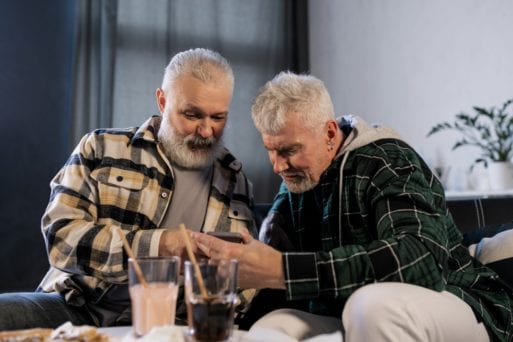
More Americans are becoming open to engaging in end-of-life conversations.
Credit: Alena Darmel
Despite the fact that the only certainty in life is death, human beings have long found ways to deny this blatant truth. People in the U.S., among other high-income countries, have been particularly shielded from confronting death by the fact that it is hidden away in hospitals, care homes or institutions — and, to the extent that is possible, sanitized. Possibly as a result, few have been open to end-of-life conversations. Only about one third of Americans have completed any type of advance directive, enabling them to specify their preferences in the event that they are incapacitated.
But the COVID-19 pandemic is changing that. A recent national survey of 1,000 U.S. adults by VITAS Healthcare found that 69% of respondents said talking about their wishes for end-of-life care was important to them. Meanwhile, 56% had actually discussed those wishes — an increase of 24% from 2018, according to data from The Conversation Project. One in five respondents said that a loved one had been seriously ill or died during the pandemic and that they didn’t know their wishes or values for end-of-life care. And more than a quarter said that the pandemic had made them more open to documenting such desires.
“The COVID-19 pandemic vividly illustrated that anyone’s health can turn on a dime, so part of caring for your family is ensuring that they know your wishes and values,” sources from VITAS told Hospice News. “One of the keys to getting people more comfortable talking about advance care planning is discussing it as part of routine care and revisiting the conversation on an ongoing basis.”
Doctors Expected to Initiate End-of-Life Conversations

Many Americans still expect doctors to bring up plans for end of life.
Credit: Tima Miroshnichenko
While Americans may be more open to end-of-life conversations, a significant number still expect healthcare professionals to bring them up. The survey found that nearly a quarter of respondents said people should start thinking about their wishes and values for end-of-life care when the doctor broaches the topic.
Such conversations can be challenging amid the restrictions caused by the COVID-19 pandemic. The virus has not only claimed over half a million lives in the U.S., but has also presented a new scenario, with large numbers of patients dying in critical care units. Meanwhile, family members have often been barred from being at the bedside.
“You cannot underestimate the stress on family members who cannot visit and are now in a crisis mode trying to talk through this over the phone,” Darrell Owens, a doctor of nursing practice who runs palliative and supportive care at the University of Washington Medical Center – Northwest, told NPR. “As much as we are obligated to save people’s lives, we are as obligated to save their deaths.”
The VITAS Healthcare study was published just ahead of National Healthcare Decisions Day on April 16, established in 2008 to provide clear and concise information on healthcare decision-making. You can obtain more information on end-of-life planning on SevenPonds’ “Before Death” page.

 Americans Are More Open to End-of-Life Conversations
Americans Are More Open to End-of-Life Conversations


 Forest Bathing Eases Grief by Soaking in Nature
Forest Bathing Eases Grief by Soaking in Nature
 The Spiritual Symbolism of Cardinals
The Spiritual Symbolism of Cardinals
 Meaning-Focused Grief Therapy: Imaginal Dialogues with the Deceased
Meaning-Focused Grief Therapy: Imaginal Dialogues with the Deceased














